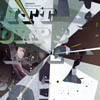 This disc of Norwegian psychedelia is much different than the kind other countries put out. Instead of sloppy stabs at slow repetition, there is instead four sprawling tracks of constantly shifting musicality that show obvious influences of psychedelics, new wave, classic and post-rock. However, the actual result isn’t as bizarre as it could be.
This disc of Norwegian psychedelia is much different than the kind other countries put out. Instead of sloppy stabs at slow repetition, there is instead four sprawling tracks of constantly shifting musicality that show obvious influences of psychedelics, new wave, classic and post-rock. However, the actual result isn’t as bizarre as it could be.
When the title track is listed as a “suite,” there’s a good bet that there is some level of pretense going on here, and there is a bit of that whole “we like odd time signatures and complex structures” thing going on, but within reasonable boundaries. Not quite Coheed and Cambria, but Motorpsycho does flaunt their obtuseness. “Suite: Little Lucid Moments” opens in a very conventional way with its guitar/bass/drums structure and clear, unprocessed vocals that seem out of place on any song with a 21+ minute duration. The changes become pretty obvious though, as the track segues in and out to its four specific parts, some more overt rock, others purely experimental.
“She Left on the Sun Ship” leans a bit less of a focus on the complexity and more focus on simply 'rocking,' with its hard rock color and more basic structure: front half of the track is the heavier rock material, while the latter part is more sparse and mellow in comparison. The overall sound of it is not drastically different from the first parts of the first track, but it tends not to change up very much.
The overarching post-rock (emphasis more on 'rock' than 'post') vibe is not unsurprising on an album of 4 long tracks such as this, but the execution is more conventional and predicable than bands of a similar ilk. One of the overall flaws about this work is that, for all intents and purposes, it doesn’t push the envelope as much as it could. There are good ideas here, but as a whole it stays too close to normalcy rather than going out in left field, which would have served it better.
While there are some unique contrasts in this album, the overall feel is one of sameness, which hurts it as a whole. The odd combination of '70s classic rock guitar that opens “The Alchemyst” being mixed with a rhythm section that has more in common with early '80s post-punk makes for an interesting contrast, but the compelling moments are too few and far between overall. The skill and execution are definitely here, but the ideas just seem to be lacking somewhat.
samples:
Read More

